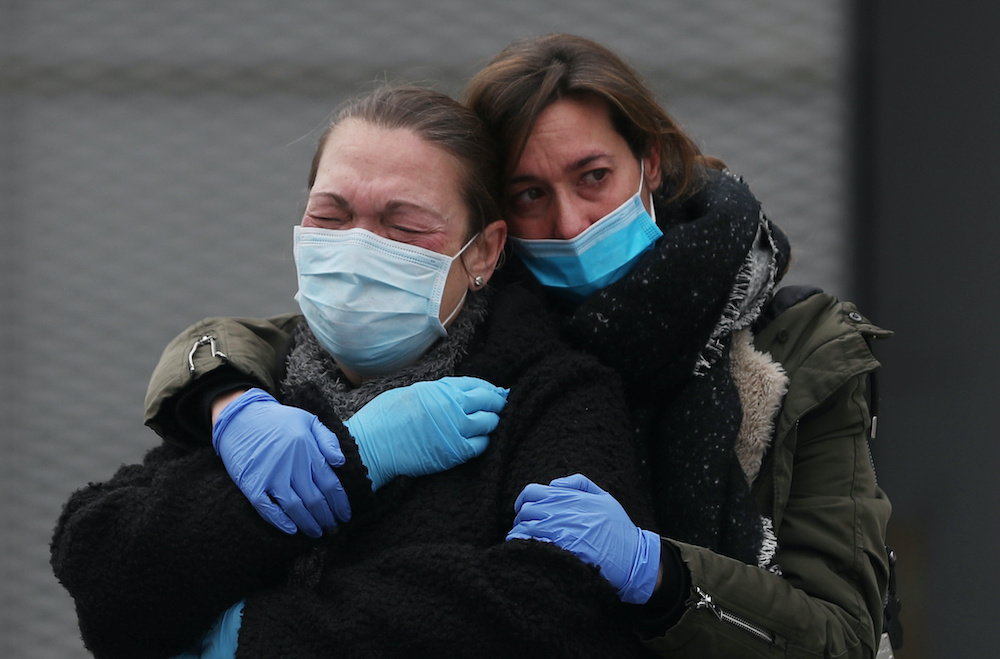Spain is one of the countries that has been hardest hit by the Coronavius pandemic. The government was slow in responding to the virus, despite the rate at which it spread during those early stages, especially in care homes and amongst the elderly.
And one of the aspects most to blame, according to experts, was the country’s sociable lifestyle, it’s close family ties and the habits of kissing and hugging, which are an important part of the culture here in Spain.
Antoni Trilla, the head of epidemiology at Barcelona’s Hospital Clinic, said that before the Government ordered it’s lockdown in 14 March, the virus “circulated under the radar a lot” and it had been especially helped by the unusually warm weather that we saw across the country, that had brought many millions of people out onto the streets, during those early months of the year.
It’s speed of transmission was also stimulated around the time of 8M, the large gatherings that took place across the country in support of Women’s Rights, during early March, although there are many different opinions, often according to political inclinations.
From Italy Dr Fabiano di Marco, chief of pulmonology at the Bergamo hospital, north east of Milan, blames the two Champions League football matches between Atalanta and Valencia, which he claims as “the main trigger in the spread of the coronavirus,” both in the Lombardy area of Italy and amongst the management and playing staff of Valencia football club, who became a focal point on their return to Spain.
Fernando Rodriguez, a public health professor at Madrid’s Autonomous University, blamed the spread on the fact that Spain has the most people living in flats of any European Union country.
“Our cities are built vertically, there is a lot of density and this can also facilitate the transmission of the epidemic. Once the virus began to take hold “in very little time there was community transmission,” he said.
Spaniards also have a long average lifespan and the country has a high number of senior citizens who are more vulnerable to the virus. The interaction between seniors and their relatives, especially with younger family members, is also very high. Families are much closer and they can so easily pass the virus on.
It is also common for several generations to live in the same property in Spain where the average age of a young adult moving out of the home is almost 30 years of age, compared to 18.5 in Sweden and 21.1 in Denmark.
Despite the fact that Spain’s public healthcare system is ranked in the top 10 in the world by the World Health Organization (WHO), like so many other countries across the world it has suffered deep spending cuts since the global financial crisis more than a decade ago.
The damage was largely done back in 2012 when national health budget was cut by 13.65%, making the it one of the lowest in the European Union. In 2013 new cuts were implemented in the dependency programmes for the country’s elderly as well as the disabled.
As a result of the cuts, a growing number of newly trained doctors and nurses became unemployed and migrated to other countries.
The austerity measures also led to many shortages, specifically a decline in the number of hospital beds and a rise in temporary contracts for doctors and nurses. Many people agree that the 2012 cuts, together with Rajoy’s austerity measures, left the country unprepared for the current crisis.
Guillem Lopez-Casasnovas, an economist and expert on healthcare systems at Barcelona’s Pompeu Fabra University who has worked as an advisor to the WHO said, “When you live day to day, you get the most out of what you have, but you don’t have enough muscle to respond to a major stressor like now.”
But for the moment, Spain must beat the virus. The country has had two tough months, but as the number of new cases and deaths continue to decline and as the coronavirus outbreak is gradually being brought under control, we can only pray that when the government begins to ease the country’s strict lockdown, the easing will be “slow and gradual, and will avoid a potential second wave of infections that so many people fear.
Prime Minister Pedro Sanchez says that he hopes to ease some restrictions in the second half of May but warns that ‘de-escalation will be slow’.





